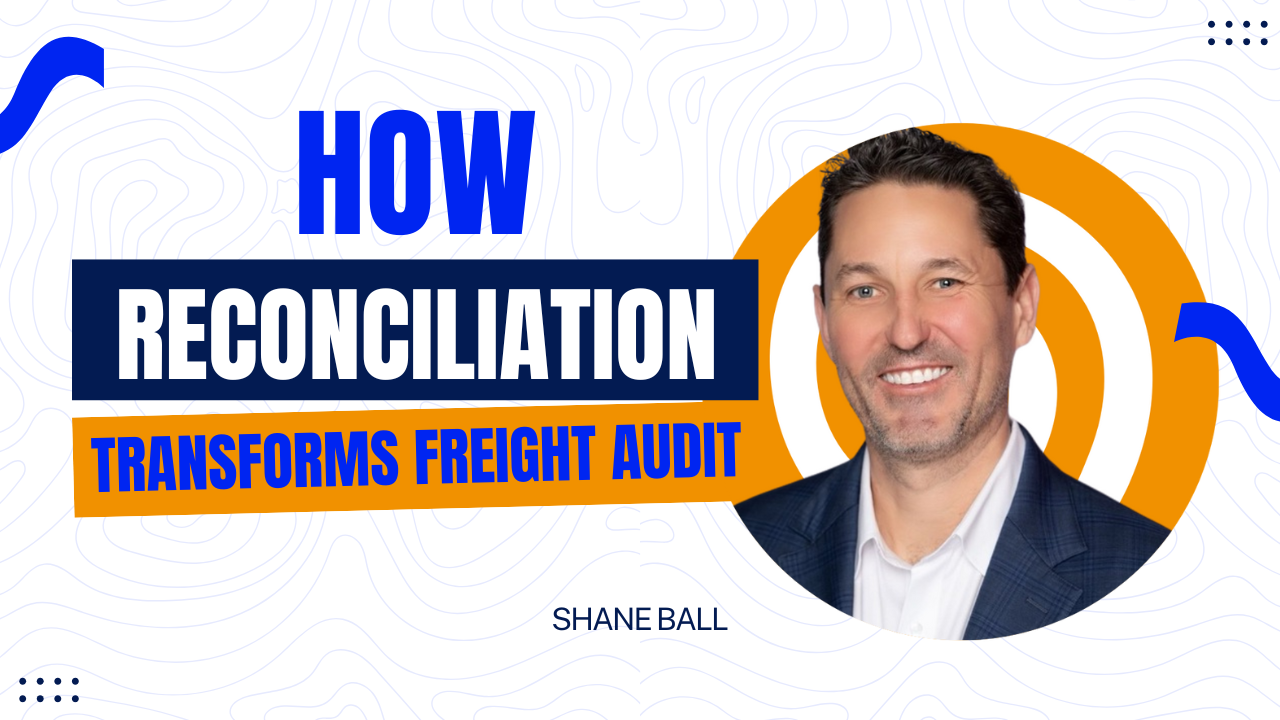
Why Freight Audit Needs a Rethink; And How Reconciliation Is the Missing Link
Insights from Shane Ball, Enterprise Executive at BlueCargo
August 5, 2025
Switching freight audit providers isn't a light decision, and we get that.
There are inherent risks involved, including delays, disruptions, and trust issues, which are significant concerns for enterprise-level importers managing large container volumes. However, when weighing the risks of continuing with a manual process or working with a provider that has not adapted to post-OSRA (Ocean Shipping Reform Act) standards, it becomes evident that change is not only beneficial but also essential.
At BlueCargo, we recently assisted one of the top ten U.S. shippers in integrating with their logistics provider, EFL Global. Through this collaboration, we reconciled vendor accounts on behalf of our customer, delivering a new level of accuracy and confidence in the audit process.
Reconciliation
Reconciliation has become one of the most powerful tools in our approach. It guarantees that all invoices from each vendor are correctly accounted for, tracked, and per the agreed-upon terms.
This process promotes transparency not only with our customers but also in their relationships with vendors.
The result?
Stronger vendor relationships, reduced risk, and clear audit trails.
Consider a world-renowned retailer that still relies on a completely manual process to review freight invoices. Vendors email invoices weekly, and the internal team must individually check each container, apply the appropriate charge code, email back for approval, and then wait for the payable invoice. This process takes about 10 to 15 minutes per invoice and container.
At best, they manage to review around 30 containers each day.
With BlueCargo's audit automation, they could process up to 225 invoices per day with accuracy and confidence.
And that’s just the beginning.
It's Not Just About Speed: It's About Empowering Teams
We often talk about cost savings in freight audit, but the most significant impact we see is on the teams themselves. When the right tools are in place, people feel in control of their work.
They can track what's done, what's pending, and what needs attention, and that sense of completion matters.
It leads to better communication across AP and AR teams, fewer internal errors, and a real boost in the teams' enthusiasm. We've watched companies transform, with teams stepping into more strategic roles, energized by the fact that the manual chaos is finally under control.
The OSRA Wake-Up Call
Since the OSRA came into effect for shippers, companies are becoming much more aware of what needs to be checked on every invoice: container number, charges vs. contract rates, timestamps, in-gate/out-gate dates, port delays, and more: 13 verification points in total.
Many are now realizing that the audit setup they've had since 2019 isn't enough, especially if their provider doesn't understand port conditions or terminal operations.
That's where BlueCargo stands apart.
We bring deep drayage expertise and port-level intelligence. We know the journey containers take across terminals and the common billing patterns that cause errors. That gives us the ability to expand audits across every container, not just spot-check based on rates.
When I speak with companies, I always ask:
Are you being billed correctly?
Is your team reviewing beyond the rate sheet?
Are your audits accounting for real-world port conditions?
Often, the answer reveals a blind spot. And that's exactly where we can help.
Want to See Where the Gaps Are?
If your current freight audit feels like it's stuck, or your team is overwhelmed by manual processes, we'd love to talk.
We'll walk you through our reconciliation-led audit process, how we collaborate with your vendors, and how your team can transition from reactive to efficient.
~ Shane Ball
﹌﹌﹌﹌﹌﹌
👉 Book a meeting with Shane to see how we can close those gaps and strengthen your freight audit process.



